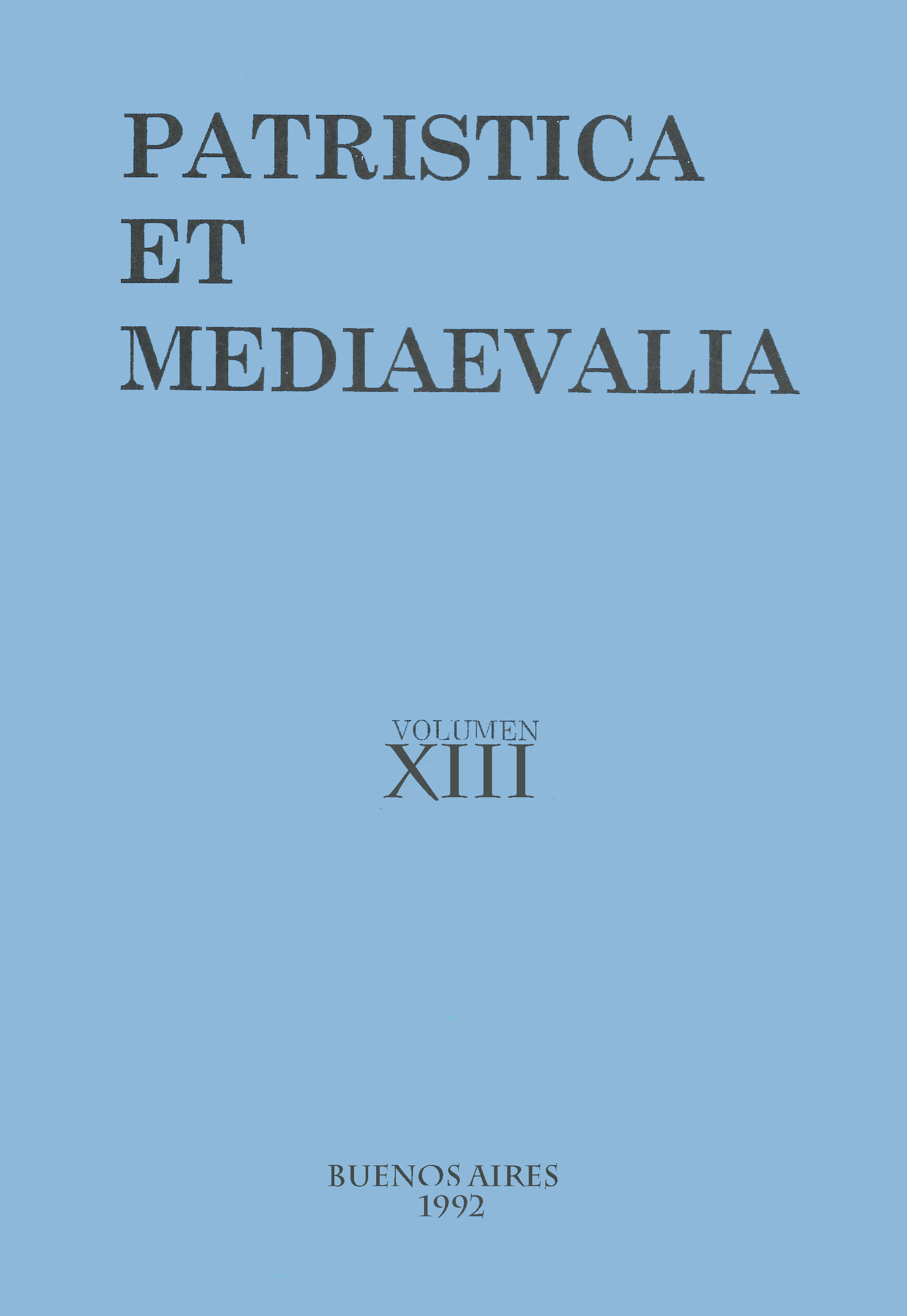On the Eriugenian Formula ‘Deus est omnia’ and its Neoplatonic Sources
Abstract
The affirmation: “God is all things”, which is found in almost all the works of Eriugena, and comes back with particular insistence in the Periphyseon, has been one of the main causes of the polemics that Eriugenian philosophy has aroused over the centuries. In order to clarify the meaning, and to discover the sources of this controversial passage, Periph. III, 650 B-D is examined in detail, highlighting the correspondence of three fundamental concepts of this passage, ‘omnia’, ‘unum’ and ‘omnium principium’, with those of Plotinus’ famous passage, Enn. V, 2, 1, on the One-Everything. These similarities, however, do not imply a direct dependence of Eriugena on Plotinus, and several differences between the texts compared suggest the existence of an intermediate source. However, the indicated sentence from the Enneads was quoted (under a vague reference) and commented on by a well-known author of Eriugena, Marius Victorinus, in Adv. Ar, IV, 22, and some peculiarities of Victorinus’ version and interpretation are found in the Periph: it is probably, then, that through this Christian Neoplatonist the Irish came into contact with the Plotinian formula. We then review other Victorinus texts on the subject, including one that may have influenced the Eriugenian translation of Pseudo-Denys’ aphorism on the Divinity, 'esse omnium'. In the last part of the article, after confirming that it was the whole reading –not explicitly mentioned by Eriugena– of Victorinus’ works that inspired the Carolingian thinker to the paradoxical positions and expressions that set him apart in this field –as in several others–, an attempt is made to draw up a (personal and provisional) assessment of the question of Eriugena “pantheism”, distinguishing between his presumed intentions and the substance of his thought, and the dialectical formulas and argumentation through which his central metaphysical intuitions seek to express and rationally support themselves.Downloads
1. The authors who publish in this magazine accept the following conditions:
-
They retain the copyright and grant to the magazine the right of the first publication, with the work registered under the Attribution-ShareAlike 4.0 International License that allows third parties to use what is published as long as they mention the authorship of the work and the first publication in this magazine.
-
They can make other independent and additional contractual agreements for the non-exclusive distribution of the version of the article published in this magazine (eg. include it in an institutional repository or publish it in a book) provided that they clearly indicate that the work was first published in this journal.
-
They are allowed and recommended to publish their work on the Internet (for example on institutional or personal pages).
2. AutoArchive Conditions. Authors are allowed and encouraged to distribute post-print electronic versions of their manuscripts because it promotes their circulation, a possible increase of quotation and a major reach among the Academic community. Color RoMEO: blue.













